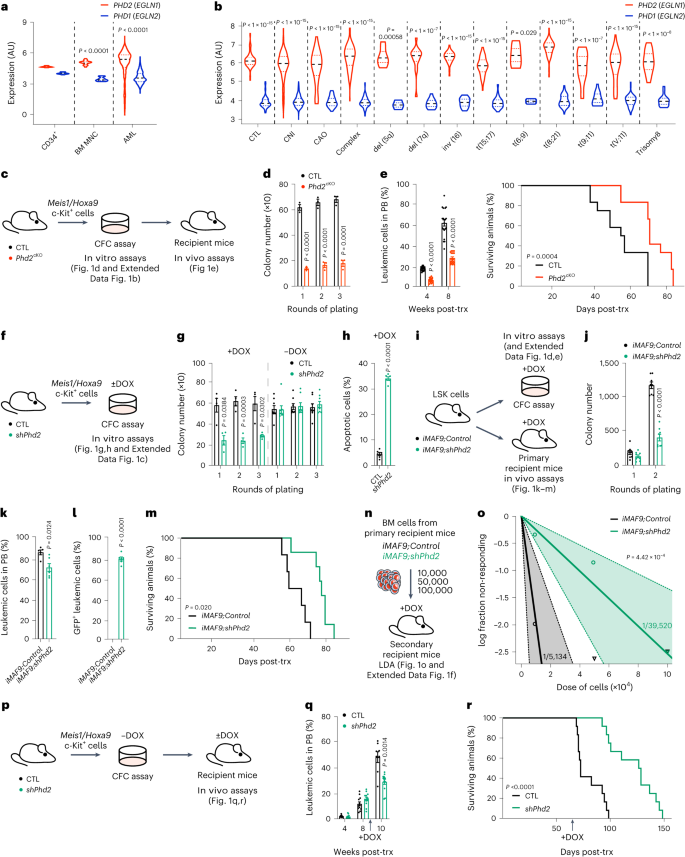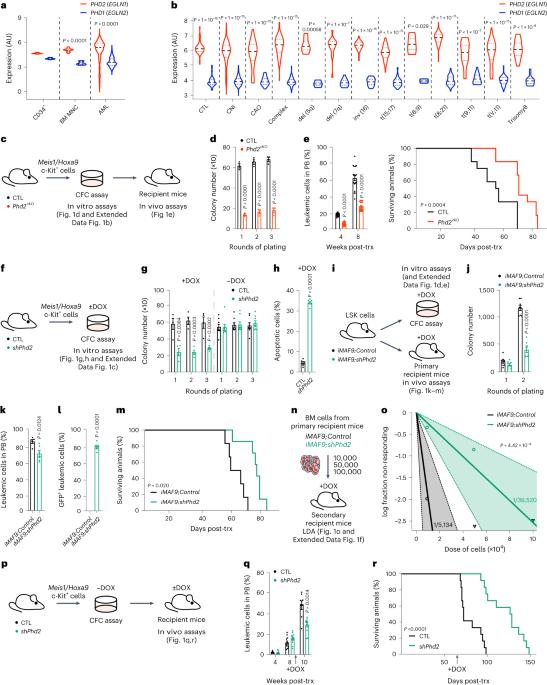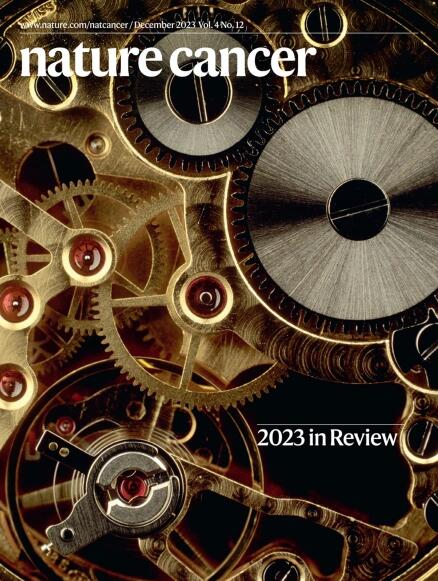选择性脯氨酰羟化酶抑制剂 IOX5 可稳定 HIF-1α,并影响急性髓性白血病的发展和病情恶化
IF 23.5
1区 医学
Q1 ONCOLOGY
引用次数: 0
摘要
急性髓性白血病(AML)在很大程度上是一种无法治愈的疾病,迫切需要新的治疗方法。虽然白血病是在缺氧的骨髓中发生的,但缺氧诱导因子(HIF)系统的可治疗性仍未确定。鉴于HIF-1α/HIF-2α失活会促进急性髓细胞白血病的发生,一种可能的临床策略是靶向促进HIF-1α/HIF-2α降解的HIF-脯氨酰羟化酶(PHDs)。在这里,我们发现 Phd1/Phd2 的遗传失活会阻碍急性髓细胞性白血病的发生和发展,但不会影响正常的造血功能。我们研究了临床使用的 PHD 抑制剂和一种新型选择性 PHD 抑制剂(IOX5),以稳定 AML 细胞中的 HIF-α。PHD 抑制以 HIF-1α 依赖性方式损害急性髓细胞白血病细胞,从而部分通过上调 BNIP3 来禁用促白血病生成途径、重新规划新陈代谢和诱导细胞凋亡。值得注意的是,venetoclax 同时抑制 BCL-2 能增强 PHD 抑制的抗白血病作用。因此,PHD抑制以及随之而来的HIF-1α稳定化是治疗急性髓细胞性白血病的一种很有前景的无毒策略,包括与venetoclax联用。本文章由计算机程序翻译,如有差异,请以英文原文为准。


The selective prolyl hydroxylase inhibitor IOX5 stabilizes HIF-1α and compromises development and progression of acute myeloid leukemia
Acute myeloid leukemia (AML) is a largely incurable disease, for which new treatments are urgently needed. While leukemogenesis occurs in the hypoxic bone marrow, the therapeutic tractability of the hypoxia-inducible factor (HIF) system remains undefined. Given that inactivation of HIF-1α/HIF-2α promotes AML, a possible clinical strategy is to target the HIF-prolyl hydroxylases (PHDs), which promote HIF-1α/HIF-2α degradation. Here, we reveal that genetic inactivation of Phd1/Phd2 hinders AML initiation and progression, without impacting normal hematopoiesis. We investigated clinically used PHD inhibitors and a new selective PHD inhibitor (IOX5), to stabilize HIF-α in AML cells. PHD inhibition compromises AML in a HIF-1α-dependent manner to disable pro-leukemogenic pathways, re-program metabolism and induce apoptosis, in part via upregulation of BNIP3. Notably, concurrent inhibition of BCL-2 by venetoclax potentiates the anti-leukemic effect of PHD inhibition. Thus, PHD inhibition, with consequent HIF-1α stabilization, is a promising nontoxic strategy for AML, including in combination with venetoclax. Lawson et al. show that genetic inactivation of Phd1 or Phd2 hinders progression of AML and compromises leukemic stem cells. They develop a selective PHD inhibitor IOX5 and show therapeutic efficacy in AML, which can be potentiated with venetoclax.
求助全文
通过发布文献求助,成功后即可免费获取论文全文。
去求助
来源期刊

Nature cancer
Medicine-Oncology
CiteScore
31.10
自引率
1.80%
发文量
129
期刊介绍:
Cancer is a devastating disease responsible for millions of deaths worldwide. However, many of these deaths could be prevented with improved prevention and treatment strategies. To achieve this, it is crucial to focus on accurate diagnosis, effective treatment methods, and understanding the socioeconomic factors that influence cancer rates.
Nature Cancer aims to serve as a unique platform for sharing the latest advancements in cancer research across various scientific fields, encompassing life sciences, physical sciences, applied sciences, and social sciences. The journal is particularly interested in fundamental research that enhances our understanding of tumor development and progression, as well as research that translates this knowledge into clinical applications through innovative diagnostic and therapeutic approaches. Additionally, Nature Cancer welcomes clinical studies that inform cancer diagnosis, treatment, and prevention, along with contributions exploring the societal impact of cancer on a global scale.
In addition to publishing original research, Nature Cancer will feature Comments, Reviews, News & Views, Features, and Correspondence that hold significant value for the diverse field of cancer research.
 求助内容:
求助内容: 应助结果提醒方式:
应助结果提醒方式:


